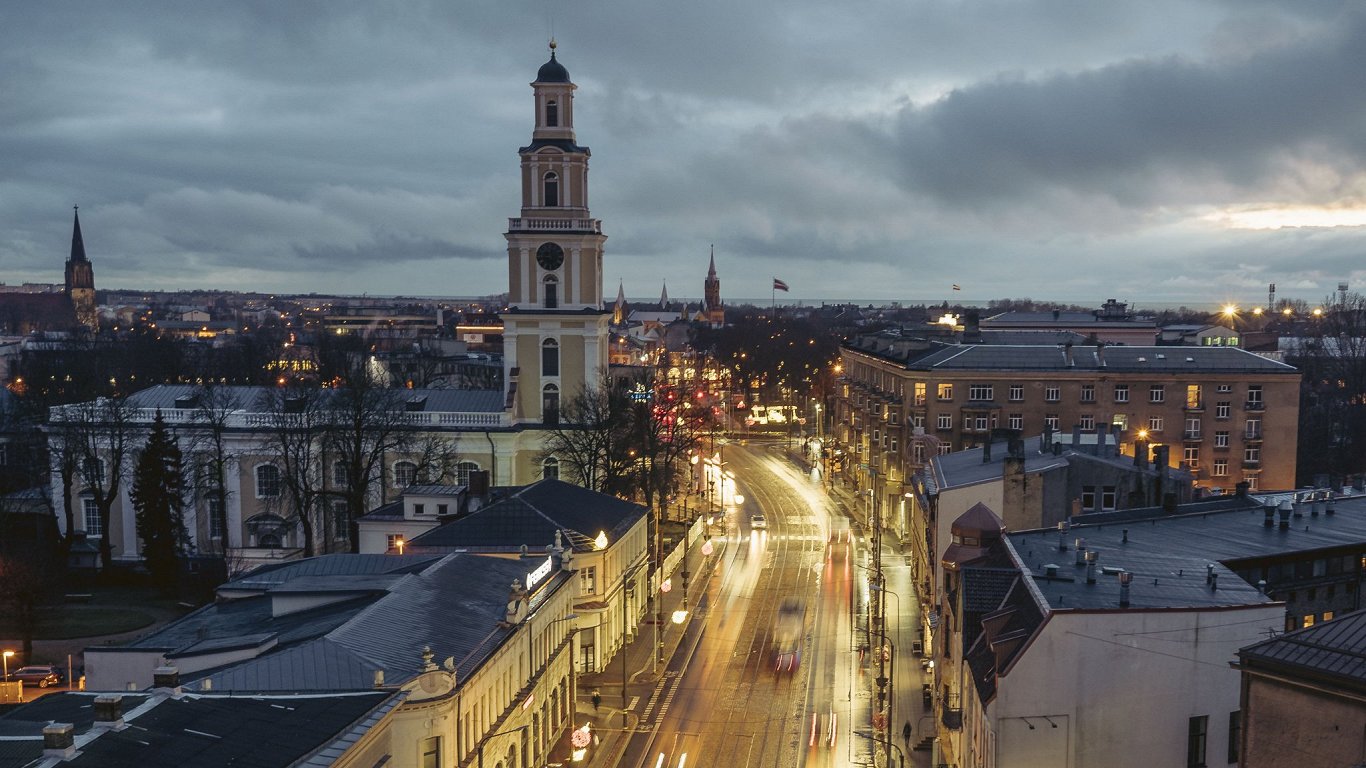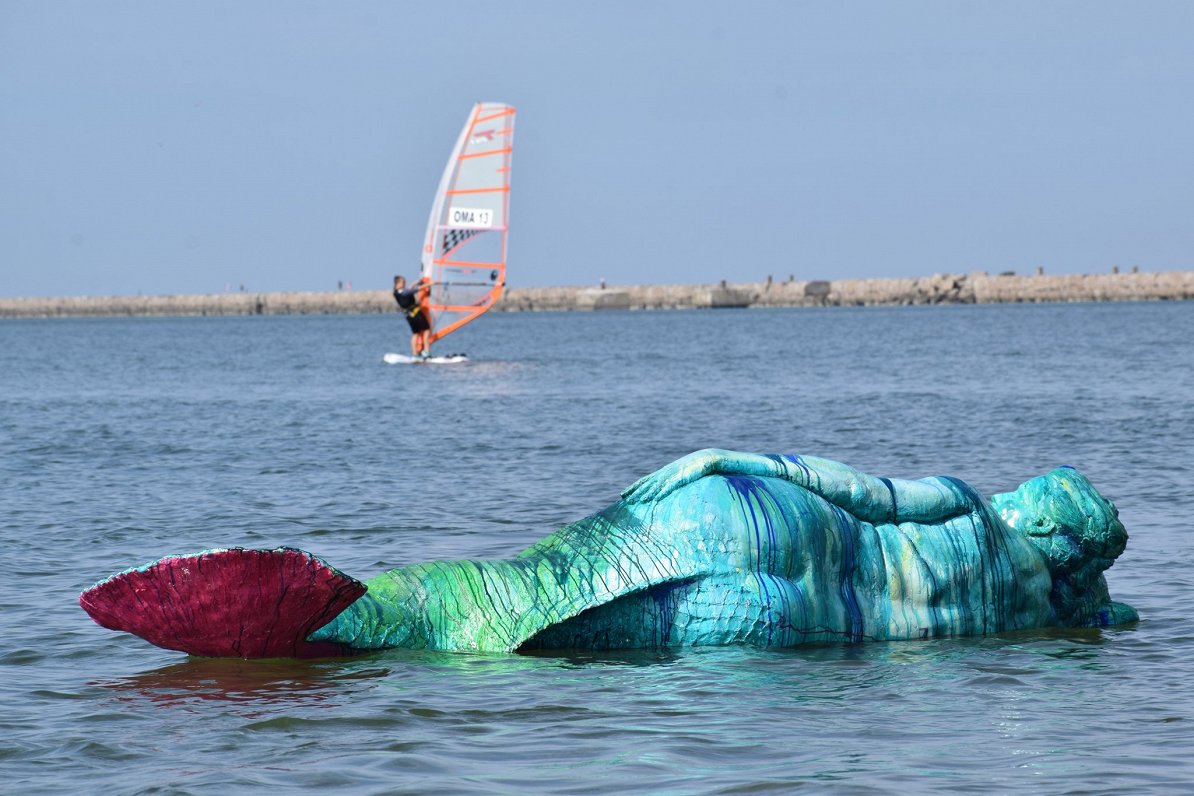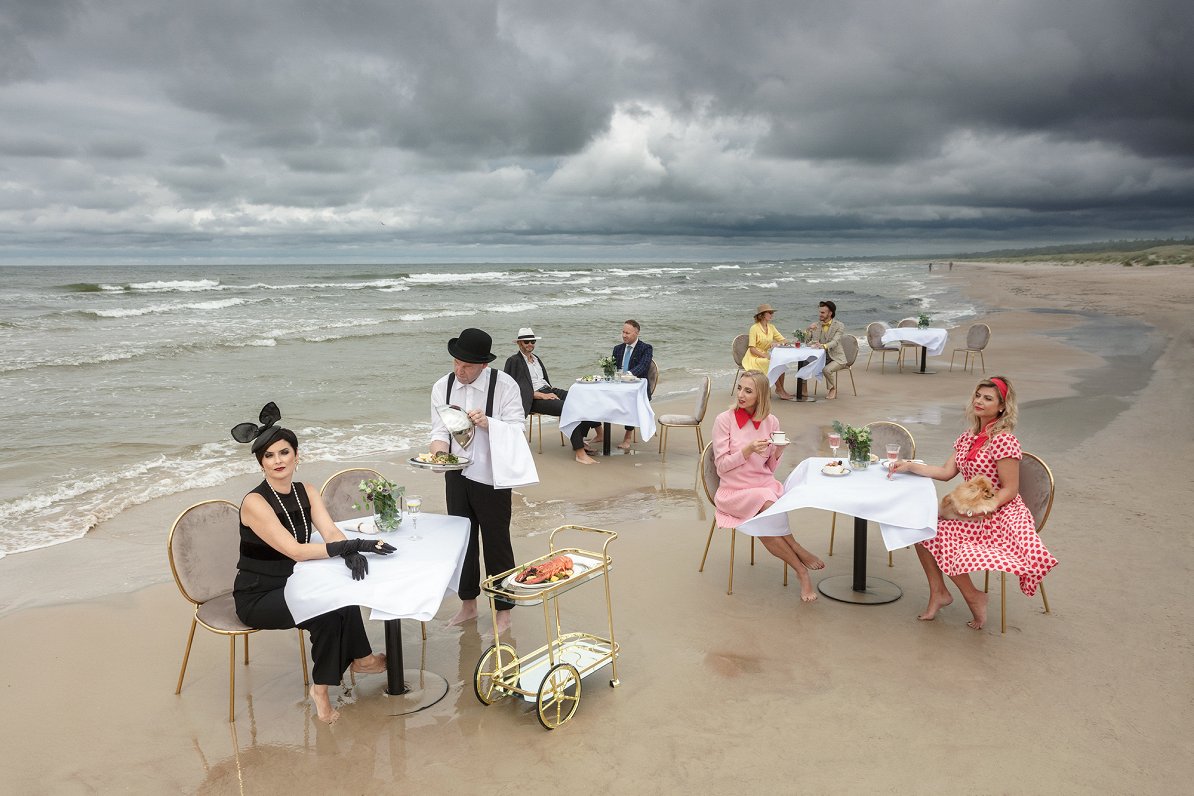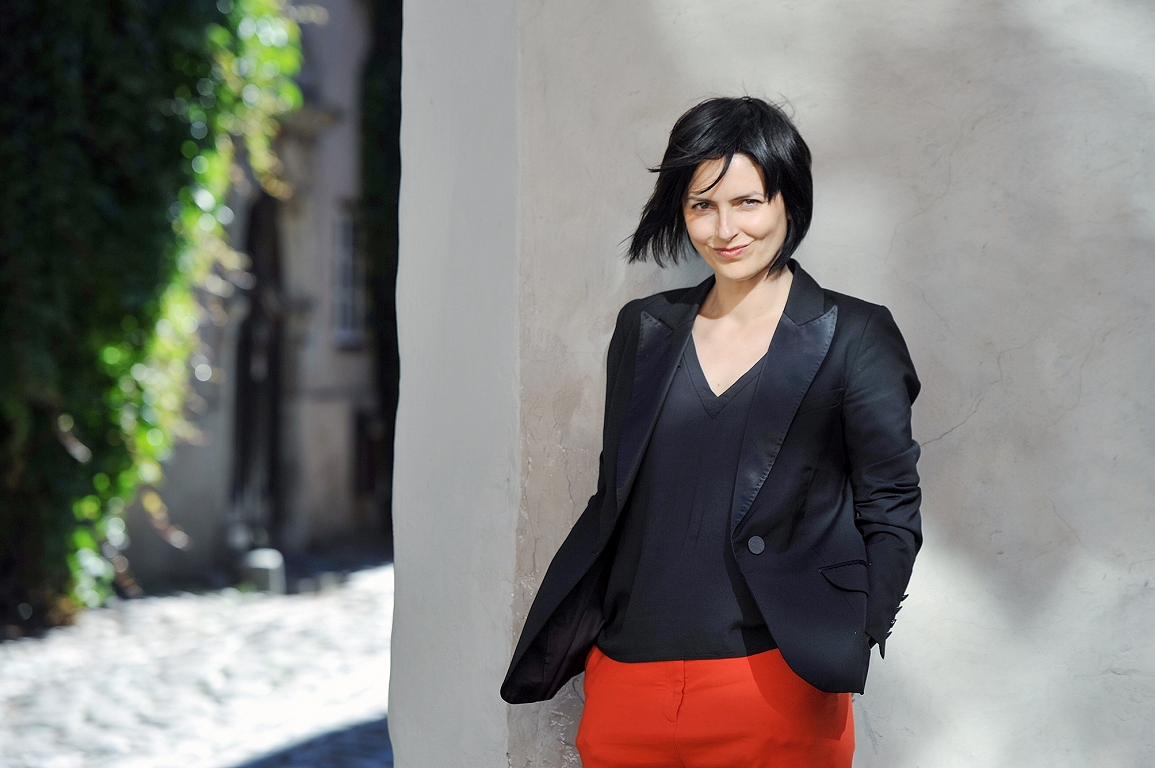Liepāja will be the European Capital of Culture in 2027 – and is eagerly preparing for it. Latvia's third-largest city has big plans and will offer about 200 cultural events over the next four years. The most vivid and substantial of them will be held in 2027 when Liepāja will share the honor with the Portuguese city Évora.
The European Capitals of Culture initiative was launched by the European Union in 1985. The honourable title has since been awarded to more than 50 cities across Europe. The program aims to highlight Europe's cultural diversity and uniqueness, strengthen European citizens' sense of belonging to a common cultural area and to make culture contribute to urban development. Two cities are selected for the program each year: one from the 'old' EU member states and one from the newer members.

Nicknamed “the city where the wind is born,” Liepāja has always been a refreshingly gusty seaside city on the Baltic Sea with a cosmopolitan breeze, powerful cultural flair and a magnificent coastline. Boasting its own unique identity, it has a habit of making waves and punching above its weight – despite having only around 70,000 residents.
No wonder that Liepāja also as European Capital of Culture wants to expresses itself with great panache. LSM talked to Liepāja 2027 artistic director Baiba Bartkeviča about the program that the the coastal city is offering under the slogan "(un)rest".
How important is it for Liepāja to be European capital of culture?
I believe it means a great deal. It's a wonderful chance to re-examine who we are and where we want to go. The title provides a platform for development and collaboration - to boost up our ideas, collaborate, and learn. We want to increase partnerships locally, nationally, and internationally. Liepāja may not be so well known to other European countries. So it's our opportunity to share our story with the world.
What story do you want to tell to the world? What is special about Liepāja?
Liepāja's character makes it distinctive. We're situated beautifully between the Baltic Sea and Liepāja Lake, surrounded by nature. We have many layers of captivating history – people's stories and culture. Liepāja has been a cultural hub since the 19th century. The Liepāja Symphony Orchestra is the oldest in the Baltics, and our theater is Latvia's first. We have a tradition of cultural excellence and refinement.
These elements make our character diverse and a bit paradoxical. In some ways, we are a provincial city – three hours from Riga, which feels far in Latvia's mental map. We form our own independent republic with a colorful, strong character. Discovering this unknown Baltic pearl could be an interesting journey - for both Latvians and Europeans.

The official theme of the Liepāja 2027 program is "(un)rest". Why did you select this slogan?
We wanted to capture Liepāja's spirit – its unrestfulness, dynamic force, creativity, innovation, curiosity, and thirst for knowledge. At the same time, there is inner rest and harmony, a balance of yin and yang. Our program is a navigation map, guiding people to understand the complex world and live happier, more balanced lives.
What is the big cultural goal for Liepāja as European Capital of Culture?
I would like the year itself, and the preparation, to build capacity and reach new audiences. I want the feeling that culture is everywhere during 2027 - not just centralized, but in community gardens and districts. We are decentralizing into the region too. Culture can be a platform for discourse and problem-solving while connecting people. It is a fantastic instrument we can give people to address big questions.
Can it be also a bridge to get closer together the different ethnic groups that are living in Liepāja?
Yes, inclusion is key. We're amplifying unheard communities' voices. Everyone will be involved as equal participants. The program integrates all - we're on the same level of expression.
Is that a challenge language wise if people do not speak Latvian?
Nowadays, Russian speakers in Liepāja and Latvia increasingly know Latvian. I would not say there are groups who don't understand anything happening here. Unfortunately, during independence, Russian and Latvian speakers have not really dialogued but lived parallel lives. However, the "Russian community" is diverse, not a monolith. We do not want separate programs based on language.

Has anything changed for Liepāja 2027 since Russia started its war in Ukraine last year?
Of course - the war has shaken everything, even daily life, and raised questions about the Capital of Culture. Our theme is "rest unrest," so we suddenly saw how fragile rest is. The war challenged much in the city, our program, and Latvia.
Will the Soviet past of Liepāja play a role in your program?
Yes, in a way. That legacy is quite present as a military base since the 19th century, including Soviet times. Many projects will engage with Karosta, the district that was the base. The Soviet era left footprints elsewhere too. We will examine that complex history.
How important is the Baltic Sea for Liepāja?
Very – it is integral to identity and community, more than a source of food or beauty. But we know the Baltic Sea is polluted while our forests suffer from climate crisis. Sustainability and environment are urgent themes we will emphasize. We want to raise awareness, spark new thinking on green solutions, re-examine habits and how we treat nature.
What does Liepāja mean personally to you?
It is my hometown - the sea, people, air, geography, friends. It is where I find both rest and unrest.
































